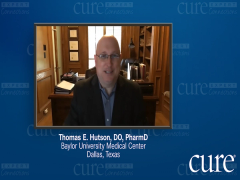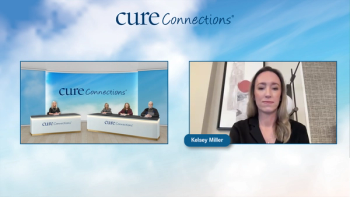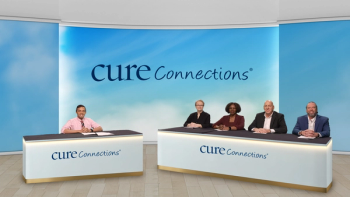
Goals of Therapy for RCC
Thomas E. Hutson, DO, PharmD, discusses the historic and current goals of therapy for the treatment of RCC.
Episodes in this series

Thomas Hutson, DO, PharmD: The goals of therapy for metastatic renal cell carcinoma is to extend life with the best quality of life possible. In 2021, we have more therapies than ever that have shown the ability to achieve this goal. We must remember that this was not always the case for kidney cancer. Prior to 2005, kidney cancer that was not curable, meaning that it had either recurred or spread outside of the kidney, was a cancer type that we did not have a lot of effective therapy. In fact, it was on that short list of cancers like pancreatic cancer, melanoma, brain tumors, where nothing that we used seemed to benefit the patient. The standard of care of the time was interferon shots, and interferon shots is a type of a general immune therapy that has a lot of side effects associated with it, and the benefit rate for patients was approximately 15% of patients having a response. It wasn't a cure; it was just shrinkage of tumor. Thus, the majority of patients had no benefit, and their survivals, therefore on average, were just a little bit over one year.
Based upon research from the 1990s, we now have a whole new group of drugs which can prolong life, shrink tumor, and in rare cases allow patients to stop therapy with no visible cancer on X-rays. We don't use the word cure in this setting — these are newer therapies — but we render patients free of cancer for what appears to be now at least several years. Thus, the advance was the understanding of what the mechanism was for the development of the most common type of renal cell carcinoma, called clear cell. We were able to determine that there is a specific genetic mutation that occurs, and we were able to find out what that mutation did in the cancer cell; what happens. We were able to find that the main mechanism for the cancer to form was through the development of angiogenesis or blood vessel factors, and that the most common angiogenesis or blood vessel factor that we know is called VEGF [vascular endothelial growth factor], V-E-G-F. That is a factor that is produced by the cancer cell because of this mutation and allows the cancer to grow. It allows the cancer to get blood supply and get larger and larger.
Thus, based upon that understanding, in a cooperation between pharmaceutical companies, the government and investigators around the world, we have been able to develop therapies which target that factor. We call them VEGF inhibitors, or blood vessel inhibitors. Many of them, if not all of them, are oral therapies. Subsequently, large studies were done at the turn of the century, including international studies where we compared these new oral therapies with interferon shots, and we showed profound benefits. For example, doubling of survival benefits and shrinkage of tumor greater than we've ever seen before with these therapies. Also, we saw the first approval of these therapies in 2005 and 2006.
This transcript has been edited for clarity.


